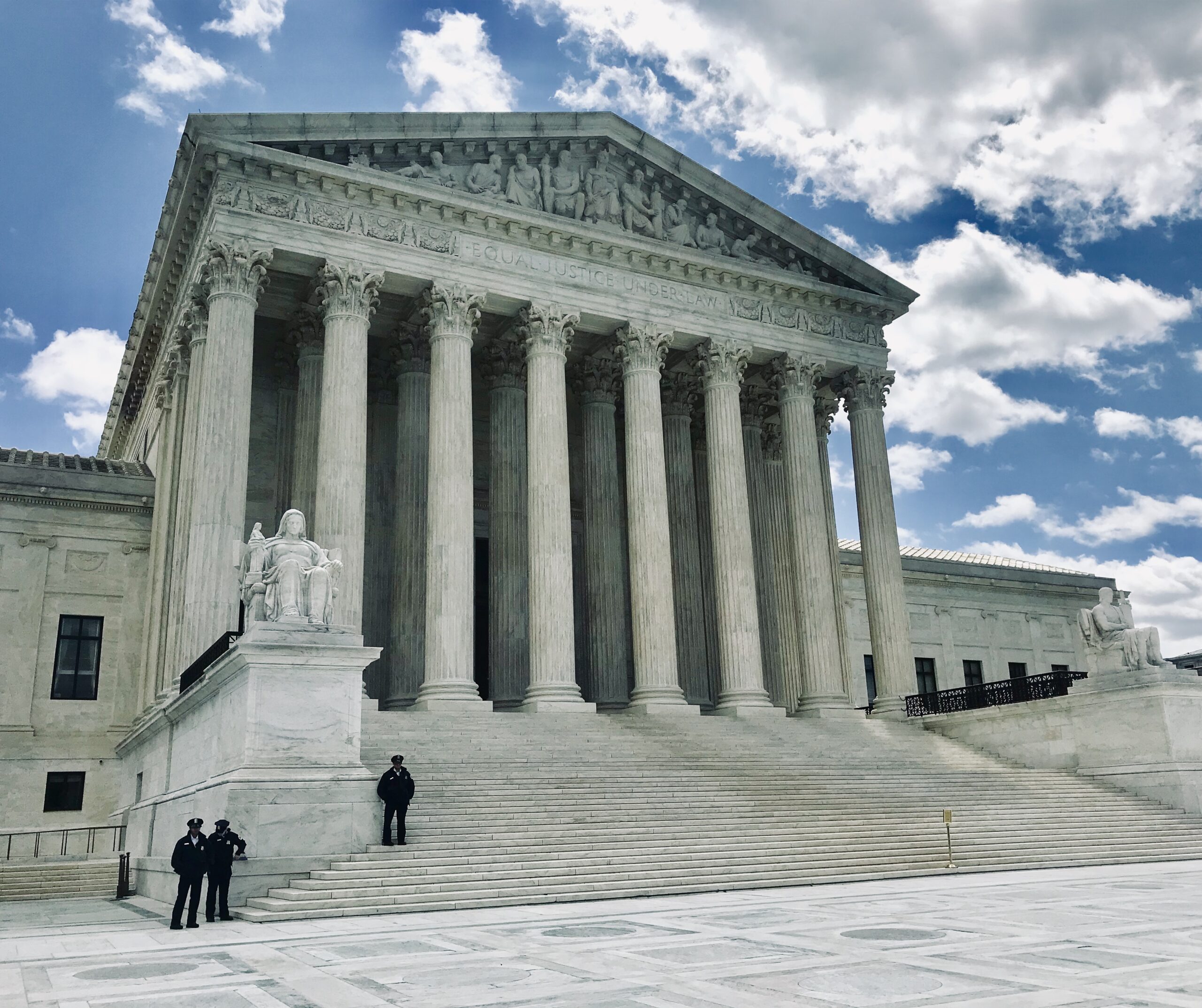Statement on Moore v. U.S., Public Access to Courtroom and the SCOTUS Police
 Fix the Court executive director Gabe Roth released this statement following oral arguments today in Moore v. U.S.:
Fix the Court executive director Gabe Roth released this statement following oral arguments today in Moore v. U.S.:
“This case was manufactured by partisan interests to try and lower the tax responsibilities of the country’s wealthiest citizens. The justices should see through this ploy and dismiss Moore as improvidently granted.
“A Court that clearly cares a great deal about its public standing — all the more obvious with the justices releasing their first-ever ethics code last month after intense public pressure — should not permit further degradations of its docket.”
For today’s arguments only 42 people from the public line — all of whom arrived at the Court before 5:15 a.m. and stood for at least four hours in frigid temps before being let inside — were admitted. That’s less than 10 percent of the seats (SCOTUSblog says there are 439 total), with the other 90 percent filled by “guests” of the Court, Court staff, Supreme Court Bar members and press.
“Live audio is great and all, but it’s ridiculous that only a few dozen average citizens were allowed into the courtroom to see one of the biggest cases of the term,” Roth added. “Cameras are the ultimate goal, but since that might take a generational shift on the Court, in the meantime it’s worth considering other ideas — a lottery system for public tickets, a cap on Bar inductions on major case days, even the construction of an interior balcony with the $150-plus million taxpayers give the justices each year.”
Somewhat related to the last point, though the judiciary as a whole is now asking for $184 million less for FY24, the Court on Nov. 8 requested a significant budget increase (10.6%, see p. 6), which to date has not been explained publicly.
Finally, Fix the Court was able to confirm that members of the Supreme Court Police Department are availing themselves of a law drafted by then-House Judiciary Committee leaders Jerry Nadler and Hank Johnson in 2022 that permitted the Court to offer SCPD deputies the same tuition reimbursement program that the Capitol Police have long had.
The law, which Fix the Court endorsed, was drafted at the Court’s request in order to assist with recruitment.